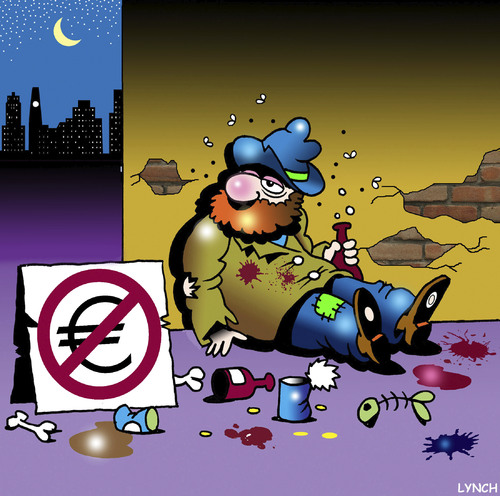
Sweden May Kill off Banknotes
Sweden, known as the first country to introduce bank notes back in the 17th century, is about to follow its pop star’s advice and replace the cash with cyber transactions.According to the American press reports, Bjoern Ulvaeus, an ex-member of Abba, has been instrumental in lobbying the authorities to give up banknotes and move to electronic cash.
Indeed, in most Swedish cities, the public transport doesn’t accept cash. Instead, the tickets are prepaid or bought through a mobile phone text message. A number of businesses also accept only cards. Even some bank offices have refused to handle cash altogether – this is more convenient and they may be confident that they won’t have to get themselves robbed.
However, this electronic new world isn’t for everybody. Curt Persson, the chairman of the country’s National Pensioners’ Organization, claims that there’s a trouble for elderly people in rural areas that either don’t have credit cards or have no idea how to use them to withdraw money. This can lead to a crisis, as people won’t be able to buy food or flat pack furniture.
Still, the reports say that even the churches have started installing card readers instead of the traditional collection plates. According to the statistics, cash makes up only part of 3% of the national economy, while this figure is around 9% in Europe and 7% in the United States. The question was why Bjoern Ulvaeus was so interested in a cashless society, and the answer may be found in the movie “The Girl with the Dragon Tattoo”, which you might have already downloaded from us. The Sweden, as shown in the movie, is full of guns, violence, nazis, and open sandwiches. Ulvaeus confirmed in the interview that it was all an issue of security.
Ulvaeus’ son has already been robbed 3 times, so he wants Sweden to move to a digital economy in order to make life harder for thieves. The country’s Bankers’ Association admits that the shrinkage of the cash economy has led to the number of bank robberies reducing from 110 in 2008 to 16 last year. In addition, electronic transactions will make it difficult to hide cash, bribe people, or get engaged in shadow economy activities.
On the other hand, this has led to an increase in cybercrime, but Ulvaeus doesn’t seem to be too concerned over this issue.












No comments:
Post a Comment